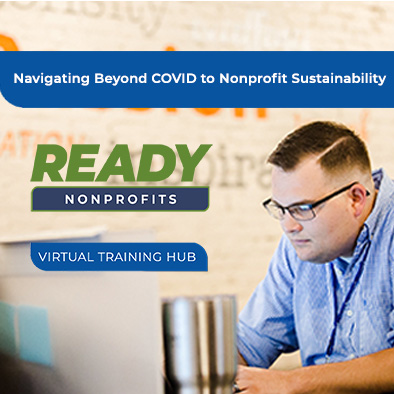Philanthropy’s Blind Spot
The informative report on “Philanthropy’s Rural Blind Spot” by Robert Atkins, Sarah Allred & Daniel Hart, in the Spring 2021 Stanford Social Innovation focuses on the lack of philanthropic support for rural areas in New Jersey. It also rightly acknowledges that that imbalance exists nationwide. The pandemic has intensified the challenges that many of our […]
Helping Nonprofits in Appalachia

Hargrove International is pleased to work with the Appalachian Regional Commission to offer custom coaching assistance to nonprofit organizations impacted by COVID-19. Delivered through READY Nonprofits, the instruction for nonprofit organizations on financial management, mission & operations, operations & programming, marketing communications, and fundraising. Hargrove also developed curated resources made available online to all organizations […]
What is a Development Audit?
A Development Audit – often referred to as a Development Assessment – is designed to determine an organization’s ability to raise annual operating support. While it is similar to a Feasibility Study in several aspects, it is almost always internally-focused, may include comparative analysis with “best practice” organizations, and does not include usually confidential conversations […]
Why is it important to use an outside consultant for Feasibility Studies and Development Audits?
Using an outside professional is important for three reasons. First – using a consultant allows you to access the expertise you probably don’t already have on your current staff. Second – an outside consultant can often identify, during the course of confidential conversations with key staff and volunteer leadership, potential problem areas that warrant attention. […]
What is a Case Statement?
A Case Statement – also called a Case for Support – is a concise description of the need(s) the campaign is designed to address, the impact it will have on the organization and those it serves, and the amount of funding required. It will often include a preliminary design for bricks-and-mortar projects. While Case Statements […]
What is the difference between a capital campaign and a comprehensive campaign?
A capital campaign is designed to raise funds for bricks-and-mortar projects. A comprehensive campaign has several components, including – for example – capital, project, endowment, bridge fund, and/or operating needs.
What is a Campaign Feasibility Study?
A Feasibility Study is an in-depth analysis of an organization’s ability to raise funds for a specific purpose or purposes. It is almost always conducted by an impartial expert consultant with extensive experience leading successful campaigns. A Feasibility Study should include confidential interviews with current and potential lead donors, staff, volunteer leadership, opinion leaders in […]
Measuring Fundraising Effectiveness, joint project of the Association of Fundraising Professionals, Give.org, BoardSource and GuideStar
This landmark publication and its accompanying conversation guide and toolkit help nonprofits move beyond the “cost of fundraising” as nonprofits’ sole measure of fundraising effectiveness. Drawing on the resources of four of the nation’s leading service organizations, Measuring Fundraising Effectiveness, identifies two new metrics for determining success and provides detailed information on how nonprofits can […]
Coastal Georgia Historical Society: Capital Campaigns

Hargrove International was engaged by the Coastal Georgia Historical Society (CGHS) to provide strategy and preliminary planning for that organization’s successful campaign to raise $4 million to convert an historic Coast Guard Station into a new state-of-the-art World War II Homefront Museum focusing on the region’s significant contributions to the war effort. Hargrove International helped […]
